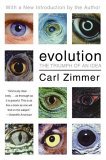Recently, on scienceblogs.com an article was posted summarizing the recent research from a Neuroscientist at Harvard Medical. The article was titled, “Restoring sight to the blind with deep brain stimulation – a World Changing Idea.” This article discusses that visual systems in the commonly blind, lack a functioning retina, however, the rest of the visual system within the brain is still properly functioning. Utilizing this information, electrical stimulation of the lateral geniuclate nucleus (LGN) may produce visual perception. The LGN is part of the thalamus and receives information or action potentials directly from the retina via the optic nerve.
This was done in a primate system and showed very encouraging results. The results indicated it may be possible (and relatively soon) to produce a neuroprosthetic device for the blind. This is amazing! The human device, in its crude state has been suggested to be a pair of glasses that has a digital camera placed upon it and this camera would wirelessly send the information from the visual field to a signal processor that would appropriately tell a deep-brain stimulator to stimulate the LGN in accordance with what was seen in the visual field by the digital camera.
The implications of this research are vast. Not only will this tell us a dramatic amount of information about our brain (the complex organ that resulted in the invention of this research) but it will assist people who are deprived of something we take for granted, vision.
Albeit an amazing discovery the question might be posed, “This is an evolution class, why did you select this article?” A large amount of science can be understood via evolution but it might not always be obvious. I think this is an important article in terms of evolution because it is an extremely interesting example of artificial selection. It is to be stressed that our restoration of vision to the blind is NOT natural selection by any means. Humans are capable of artificially selecting for traits within their species that would rarely be naturally selected for, if it were any other species. Deadly ailments that exist in nature rarely allow for an organisms survival or reproduction but due to our extreme intellect, we are able to devise means to artificially select for these traits to persist. Evolution has allowed for the development of the consciousness that we use for our values and morality and emotion that decides that we cannot allow people to suffer – that we must cure disease. But are we evading reality? And in accordance with my previous question, it is interesting to note that the article for the summary of this primary research was posted under neurophilosophy on scienceblogs.com.
Would a rabbit likely be preyed upon if it were blind? Would it be able to find a mate and reproduce readily? Mutations or traits such as blindness may have been selected against over the billions of years of evolution, and though I have not been here to witness such events, it is an interesting topic to think about.
Full citation of original paper:
J. S. Pezaris and R. C. Reid, 2007. Demonstration of Artificial Visual Percepts through Thalamic Microstimulation, PNAS 104:18: 7670-7675. doi:10.1073/pnas.0608563104
[Contributed by Steven Miller]
Friday, February 15, 2008
The Evolution of Neuroscience: Curing the Blind
Tags:
student post
Subscribe to:
Post Comments (Atom)













0 comments:
Post a Comment